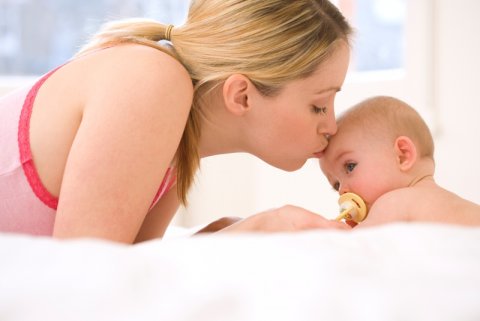Pregnancy and motherhood are beautiful, but apart from their obvious advantages they have a few drawbacks. Urinary incontinence is one of them – it concerns as much as 30% of pregnant women.
The daily volume of urine and the frequency of urination increases during pregnancy. In the I and the II trimester the amount of urine passed during a single bladder voiding increases – in the III trimester the volume drops down, but the urge to visit the toilet is much more frequent. The capacity of the bladder pressed by the uterus gets gradually smaller, and the volume of the urine filling the ureters increases. More than two-thirds of women in the final stage of pregnancy experience the urge to urinate at night.
The type of incontinence experienced during pregnancy is mostly stress incontinence. It develops in the III trimester when the uterus is at its biggest. Usually the incontinence means losing a few drops of urine what is difficult to notice when a woman frequently changes her hygienic pads, but sometimes the problem might be more serious.
The extent of hormonal changes during pregnancy is so big, that it is quite a burden for the whole organism. The growing baby expands the uterus walls taking over the entire available space in the abdomen. Causing all other organs to give up their place. They move back, and now, squeezed inside the abdomen, need to work in much more difficult conditions. Ocassionally, as the baby jostles and kicks more and more hitting the bladder, the kicks are so strong that the weakened sphincter muscles let go causing urine loss. Additionally the bladder under the pressure of the uterus has so little room that the pregnant woman feels the urge to urinate even when the bladder is only filled with little urine.
Pregnancy is also the time when due to the changes in the mucous membrane of the urogenital tract, a woman is more likely to suffer infections – both of the urinary system and of the intimate parts. These infections may cause discomfort during urination and increase the number of urine loss episodes.
Practical advice for a mom-to-be:
After giving birth, the body gradually returns to its state from before pregnancy. Hormonal imbalance and weakened or damaged pelvic muscles may still be a cause of urine loss, however this should gradually decline and eventually disappear.
For most women, the symptoms of urinary incontinence disappear within 3 months after childbirth. If incontinence does not decline within 6 months after childbirth, it is advised to visit a urologist or gynecologist and seek medical advice. The doctor will help you find a way to manage your condition.
Each pregnancy and childbirth weakens the pelvic floor muscles making it more difficult to get them back in shape. More difficult doesn’t mean that it is impossible, though. The Kegel exercises performed systematically already during the pregnancy and postpartum period improve the condition of the crotch muscles, the pelvic floor muscles and the urogenital diaphragm, simultaneously improving the efficiency of the urethra closing system.  In the case of most women the symptoms of urinary incontinence disappear within 3 months from childbirth, or a bit later in the case of women who had given birth several times, or gave birth to a child weighing more than 2 lbs. If the incontinence doesn't decline after 6 months from childbirth, when the tension of the muscles should return to its normal, it is advised to visit a urologist or a gynecologist and seek medical advice. The doctor will help you find the way to manage your problem.
In the case of most women the symptoms of urinary incontinence disappear within 3 months from childbirth, or a bit later in the case of women who had given birth several times, or gave birth to a child weighing more than 2 lbs. If the incontinence doesn't decline after 6 months from childbirth, when the tension of the muscles should return to its normal, it is advised to visit a urologist or a gynecologist and seek medical advice. The doctor will help you find the way to manage your problem.
Practical advice for a new mom:
See why it is worth using Seni Lady bladder control pads.
A well-chosen product means both the patient's comfort and less risk of serious pressure sores, as well as less work for the caregiver. Choose a product with our help.
Choose productChoosing the right product is very important.
That is why, we created a simple tool called "Diagnostics".